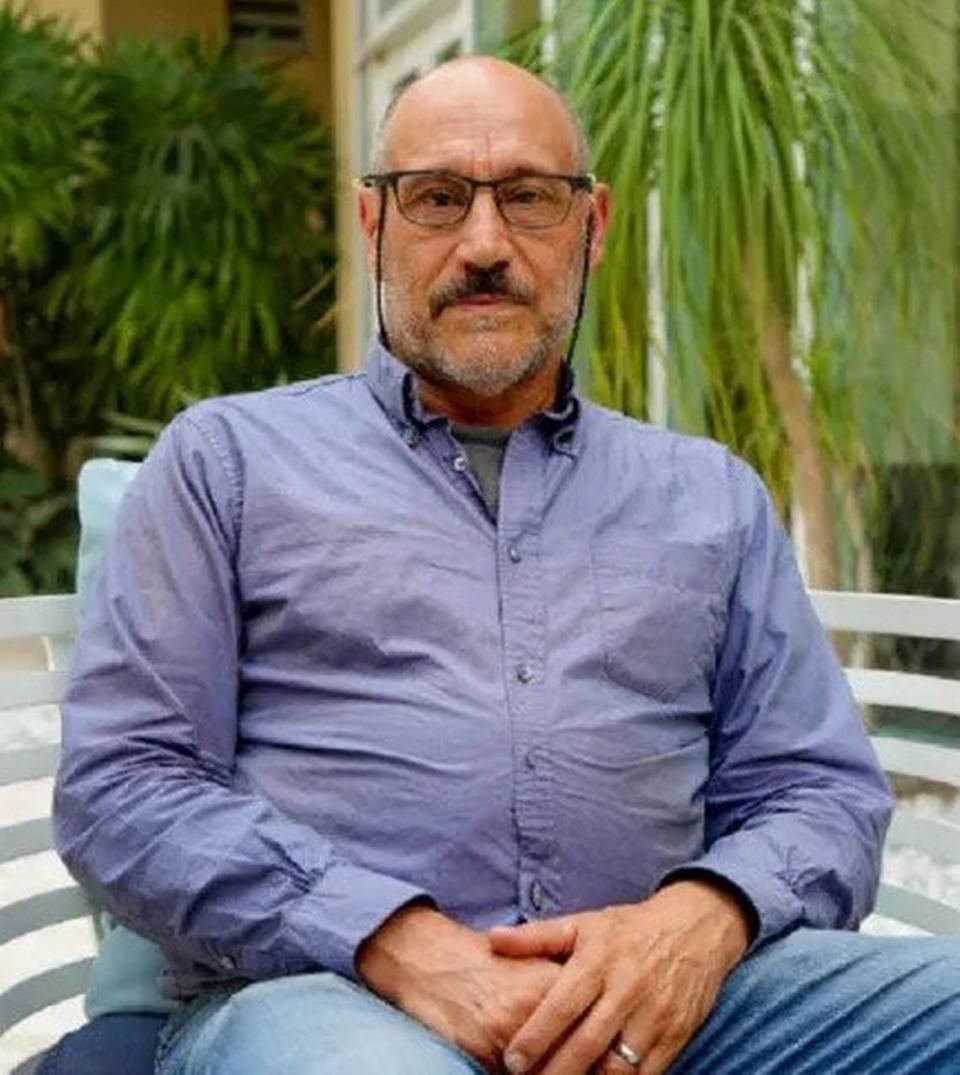Ecuador at the center of Latin America’s slide into authoritarianism and violence | Opinion
- Oops!Something went wrong.Please try again later.
- Oops!Something went wrong.Please try again later.
The unprecedented political violence in historically tranquil Ecuador — including the brazen assassination of presidential candidate Fernando Villavicencio on Aug. 9 — is a harbinger of rising instability across Latin America, driven by expanding illicit markets protected by ideologically agnostic authoritarian leaders allied with transnational criminal organizations.
The International Coalition Against Illicit Economies’ April 2023 policy brief, “Emerging Transnational Organized Crime Threats in Latin America: Converging Criminalized Markets and Illicit Vectors” identified Ecuador as a key hemispheric center of gravity where the rule of law is collapsing, democratic institutions are under assault and new regional and extra-regional criminal groups exercise expanding control.
As we wrote: “The multi-billion dollar illicit economies across Latin America, long centered on the cocaine and narcotics trade but diversifying to new commodities and activities, are undergoing a volatile, profound reordering and restructuring, with long-term strategic repercussions in the years to come for the United States and its key allies in the hemisphere.
“The framework of the convergence paradigm posits that multiple transnational criminal and terrorist groups — and their enablers, regardless of ideology, work collaboratively when common interests align, and under state protection when such cooperation is mutually beneficial.”
Ecuador sits in the center of these multi-faceted challenges that are metastasizing across Latin America. But U.S. policy is drifting without discernable strategic direction. The administrations of Lenin Moreno (2017-2021) and Guillermo Lasso (current) sought significant reengagement with Washington, following a decade of hostile relations under former authoritarian Rafael Correa.
Washington’s limited response to pleas for more tools to fight transnational organized crime has done little to stop the nation’s slide. This is exacerbated by the subversive and predatory activities by China, Russia, Iran and other malign networks operating more brazenly across the region in the absence of a strong U.S. presence.
These new criminal alliances, identifiable in Ecuador and growing across the continent, has roots in the failed authoritarian populism of the Venezuela-led Bolivarian movement and its embrace of transnational organized crime as an instrument of state policy.
In Ecuador, the 10 years of the gross misadministration of Correa, an acolyte of Hugo Chávez and ally of the FARC rebels, paved the way for the current chaos. Correa’s hand-picked candidate, Luisa Gonzalez, emerged as the frontrunner in the first round of voting on Aug. 20.
Correa’s “universal citizenship” policy abolished visa requirements and opened the country’s borders to the organized-crime groups from Mexico, Albania, Italy and Turkey driving today’s wave of violence. Ecuador’s traditionally low homicide rate has jumped by almost 500%, from 1,088 in 2019 to 4,761 in 2022.
The new illicit economies centered on synthetic drugs, counterfeit pharmaceuticals and other contraband have led extra-regional criminal structures to ally with Mexican cartels, former guerrilla and paramilitary groups and transnational networks operating under the protection of the deeply criminalized Maduro regime in Venezuela.
Ecuador sits between Colombia and Peru, the world’s leading cocaine producers, with weak border controls and a dollarized economy that facilitates money laundering. New illicit actors are finding Ecuador’s lax port control, dollarization and the increasing presence of the Chinese in those ports to be attractive.
What’s at stake: Access to the vital Pacific maritime route for cocaine and other illicit products and access to dollarized banks, unregulated ports and easy access. The Maduro regime and allied criminal groups, whose Caribbean drug-trafficking routes are under pressure, are using small aircraft to ferry cocaine, gold, coltan and timber to Ecuador for further movement in the Pacific.
While Ecuador is the most extreme case of the rise of criminalized control, Argentina and Chile are taking steps down the same violence-strewn path; Colombia is emerging as life support for the Maduro regime while halting most efforts to combat cocaine trafficking. In Central America, presidents Nayib Bukele in El Salvador and Xiomara Castro in Honduras are aggressively embracing criminal structures as part of their authoritarian governance models, which abridge the rule of law under the banner of countering street violence.
Correa in Ecuador and his kindred spirits across the region used the siren song of embracing criminal structures and their corruption under the guise of promoting stability. This created the current conditions in Ecuador.
As Gen. Laura Richardson, commander of the U.S. Southern Command noted, Latin America is “under assault from a host of cross-cutting, transboundary challenges that directly threaten our own homeland.” Without significantly more U.S. attention, creativity and seriousness of purpose, these trends may soon be irreversible. Ecuador will not be the only democratic U.S. ally to become a criminalized state and fall prey to the authoritarian wave crushing the Americas.
Douglas Farah is a senior adviser for Latin America at the International Coalition Against Illicit Economies (ICAIE) and president of IBI Consultants, LLC.


